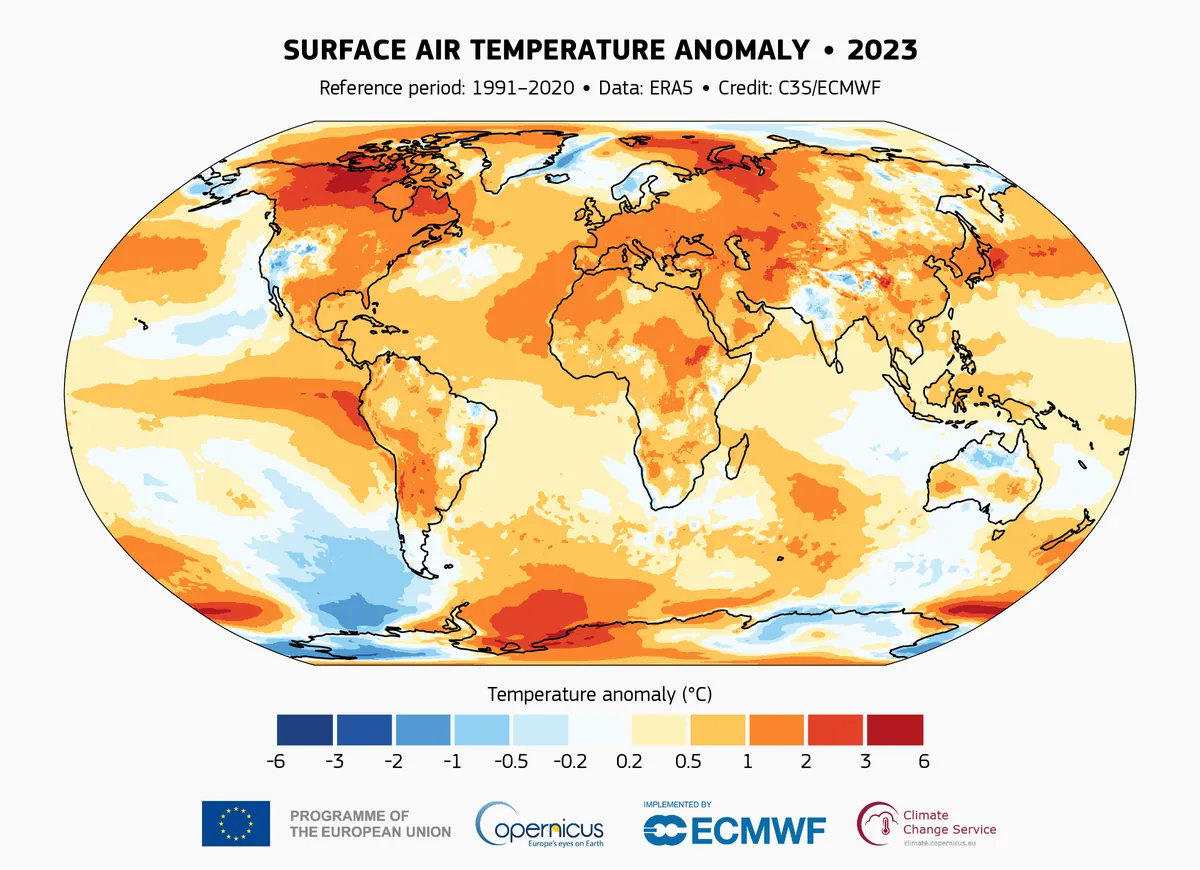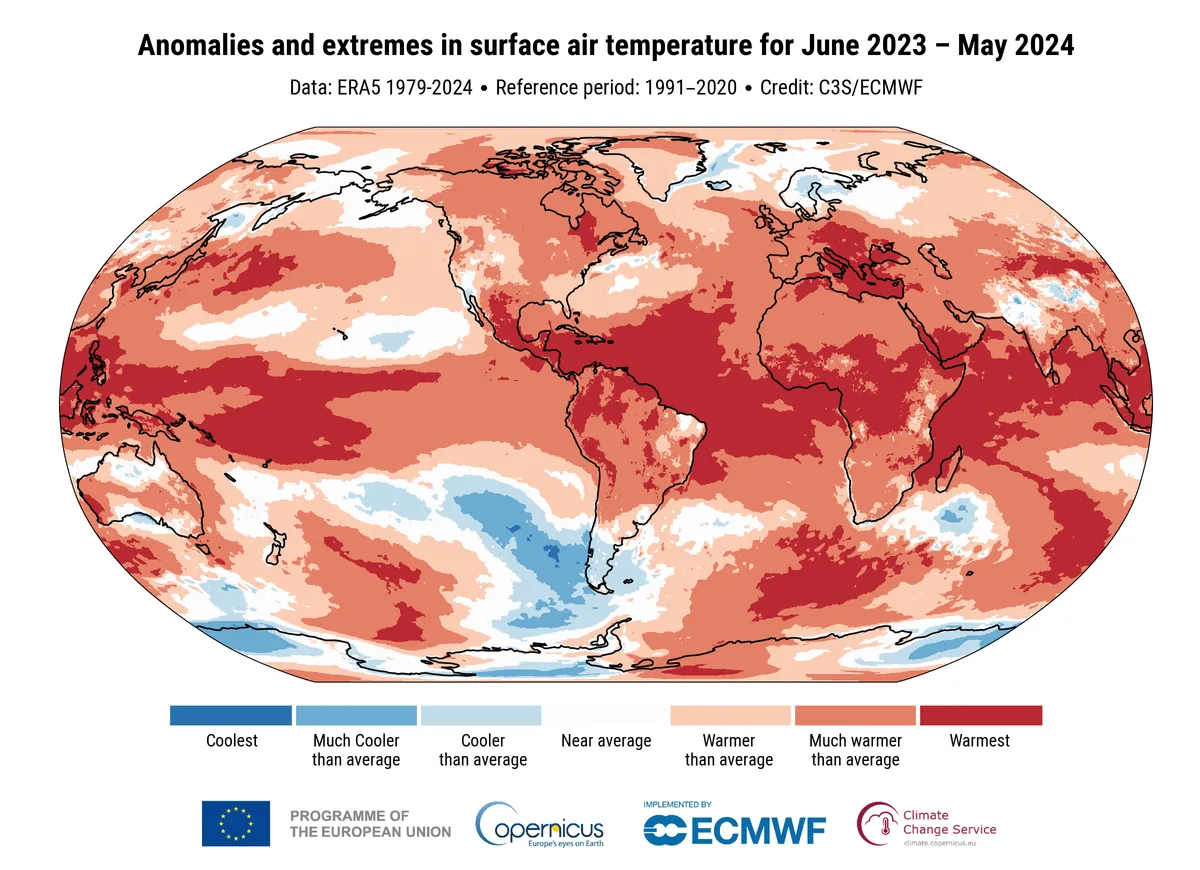Earth's Hottest Summer on Record: 2024 Shatters Temperature Milestones
Summer 2024 breaks global temperature records, surpassing 2023's highs. Climate experts warn of increasing extreme weather events as human-caused climate change continues to impact the planet.

The summer of 2024 has etched its place in history as the hottest ever recorded, according to data released by the Copernicus Climate Change Service. This unprecedented heat has significantly increased the likelihood that 2024 will conclude as the warmest year in human records.
The meteorological summer months of June, July, and August averaged 16.8°C (62.24°F), surpassing the previous record set in 2023 by 0.03°C (0.05°F). This marginal difference underscores the accelerating pace of global warming, with records being broken in quick succession.
August 2024 tied with August 2023 as the hottest on record, both registering 16.82°C (62.27°F). While July 2024 fell slightly short of setting a new record, the exceptionally hot June pushed the overall summer average to new heights.

Climate scientists attribute this warming trend to human-caused climate change, exacerbated by the temporary influence of El Niño. Stefan Rahmstorf of the Potsdam Institute for Climate Impact Research emphasized the gravity of the situation, stating that these numbers reveal "how the climate crisis is tightening its grip on us."
The implications of these temperature increases extend beyond mere statistics. Carlo Buontempo, Director of Copernicus, noted that alongside high temperatures, humidity levels, as measured by dew point, likely reached record highs in many parts of the world during the summer.
"This all translates to more misery around the world as places like Phoenix start to feel like a barbecue locked on high for longer and longer stretches of the year."
The extreme heat has manifested in various forms of severe weather globally. Phoenix, Arizona, for instance, experienced over 100 days with temperatures exceeding 37.8°C (100°F) this year. Other regions have faced intensified droughts, while some areas have seen increased rainfall and flooding.
Jennifer Francis, a climate scientist at the Woodwell Climate Research Center, highlighted the ongoing deluge of extreme weather events, including heat waves, floods, wildfires, and high winds. She likened the constant barrage of climate-related disasters to living in a war zone, warning that society may be becoming desensitized to what should be alarming signals.
Looking ahead, Buontempo expressed near certainty that 2024 will surpass 2023 as the warmest year on record. Even with the potential cooling effect of an upcoming La Niña, it's unlikely to offset the overall warming trend sufficiently.
As the world grapples with these escalating climate challenges, the need for urgent action to address human-caused climate change becomes increasingly apparent. The burning of fossil fuels remains a primary driver of greenhouse gas emissions, and efforts to transition to cleaner energy sources are more critical than ever.
The records set in 2024 serve as a stark reminder of the ongoing climate crisis and the imperative for global cooperation to mitigate its impacts. As temperatures continue to rise, the frequency and intensity of extreme weather events are expected to increase, underscoring the urgency of climate action on both individual and governmental levels.


































